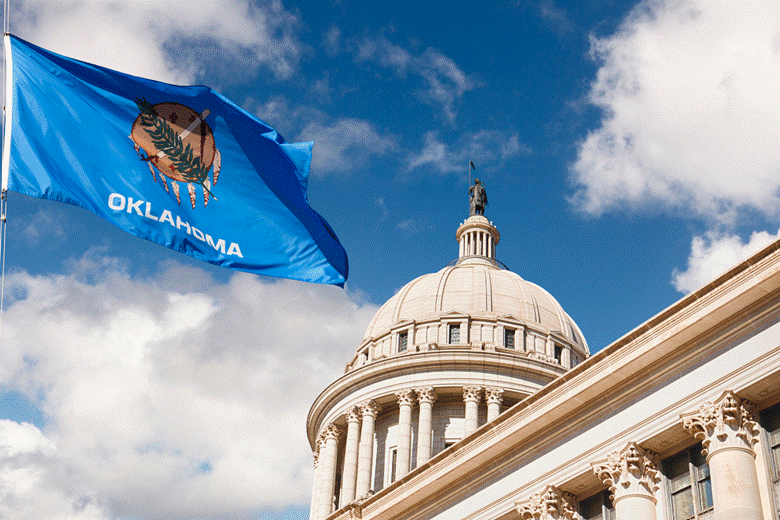
In the heartland of America, where justice meets mercy, lies the Oklahoma Pardon and Parole Board. This institution serves as a beacon of hope for those seeking redemption and a second chance at life. Through a meticulous process of review and consideration, individuals come before the board, pleading for clemency and forgiveness. Let’s delve into the inner workings of these hearings and explore the profound impact they have on the lives of both applicants and the community at large.
The Role of the Pardon and Parole Board in Oklahoma
At the helm of Oklahoma’s criminal justice system stands the Pardon and Parole Board. Tasked with evaluating applications for clemency, parole, and pardons, this board operates with a keen focus on fairness, rehabilitation, and public safety. Comprised of dedicated individuals with diverse backgrounds in law, social work, and advocacy, the board diligently assesses each case brought before them.
Active Participation in the Justice System
The Pardon and Parole Board Oklahoma plays a pivotal role in ensuring that justice is served equitably. By providing a platform for individuals to present their cases, the board fosters a sense of accountability and transparency within the criminal justice system. Through active engagement with applicants, legal representatives, and community stakeholders, the board strives to make informed decisions that uphold the principles of fairness and integrity.
Promoting Rehabilitation and Reintegration
Central to its mission is the promotion of rehabilitation and reintegration into society. The board recognizes that individuals seeking clemency or parole have the potential for positive change and productive contributions to their communities. By granting opportunities for early release or pardon, the board empowers individuals to pursue rehabilitation programs, education, and employment opportunities that facilitate their successful reintegration into society.
Inside the Hearings: A Closer Look
Each hearing conducted by the Pardon and Parole Board Oklahoma is a multifaceted process that involves thorough examination and deliberation. From reviewing case files to hearing testimonies, board members meticulously assess the merits of each application before rendering a decision. Let’s take a closer look at the key components of these hearings.
Presentation of Cases
Applicants appearing before the board have the opportunity to present their cases with the assistance of legal counsel or advocates. Whether seeking parole or a pardon, individuals are encouraged to provide compelling narratives that highlight their personal growth, remorse, and commitment to rehabilitation. Through testimonials, evidence of rehabilitation efforts, and letters of support, applicants strive to demonstrate their readiness for a second chance.
Examination and Deliberation
Following the presentation of cases, board members engage in rigorous examination and deliberation. Each case is evaluated based on a comprehensive set of criteria, including the nature of the offense, the individual’s criminal history, rehabilitation efforts, and input from victims and community members. Through thoughtful discussion and analysis, board members weigh the factors at play and assess the potential impact of granting clemency or parole.
Consideration of Public Safety
Throughout the deliberation process, the Pardon and Parole Board of Oklahoma remains steadfast in its commitment to public safety. Board members carefully consider the risk factors associated with each case, taking into account the safety concerns of victims, communities, and society at large. By prioritizing public safety while also recognizing the potential for rehabilitation, the board strives to make decisions that balance accountability with compassion.
Impact and Outcomes
The decisions rendered by the Pardon and Parole Board Oklahoma have far-reaching implications for individuals, families, and communities across the state. Whether granting parole to an eligible inmate or recommending a pardon for an individual seeking exoneration, each outcome reflects the board’s commitment to fairness, justice, and second chances.
Restoring Dignity and Hope
For many applicants, the opportunity to have their cases heard by the Pardon and Parole Board represents a chance for redemption and restoration. By granting clemency or parole, the board affirms the inherent worth and dignity of individuals who have made mistakes but seek to atone for their actions. Through acts of forgiveness and compassion, the board instills hope and fosters a sense of optimism for a brighter future.
Strengthening Communities
The impact of the Pardon and Parole Board extends beyond individual cases to the broader community. By promoting rehabilitation and reintegration, the board contributes to safer and more resilient communities. Individuals who are granted clemency or parole have the opportunity to rebuild their lives, support their families, and contribute positively to society. Through these transformative efforts, the board helps strengthen the social fabric and promote a culture of empathy and understanding.
FAQs
How does someone apply for clemency or parole in Oklahoma?
To apply for clemency or parole in Oklahoma, individuals must submit a formal application to the Pardon and Parole Board. The application process typically involves providing detailed information about the nature of the offense, personal background, rehabilitation efforts, and reasons for seeking clemency or parole. Applicants may also be required to attend a hearing before the board to present their cases in person.
What factors does the Pardon and Parole Board consider when reviewing applications?
The Pardon and Parole Board considers a variety of factors when reviewing applications, including the nature and severity of the offense, the individual’s criminal history, efforts at rehabilitation, input from victims and community members, and the potential risk to public safety. Board members carefully weigh these factors to make informed decisions that uphold the principles of fairness, justice, and public safety.
How long does the review process take?
The review process for clemency and parole applications can vary depending on various factors, including the complexity of the case and the availability of relevant information. In some instances, the process may take several months or even years to complete. However, the Pardon and Parole Board strives to conduct thorough and timely reviews to ensure that each case receives proper consideration.
Can individuals appeal the decisions of the Pardon and Parole Board?
While the decisions of the Pardon and Parole Board are final and cannot be appealed, individuals may have recourse through other legal avenues, such as filing petitions for judicial review or seeking executive clemency from the governor. However, it’s important to note that these processes have their own set of criteria and requirements, and success is not guaranteed.
In the heart of Oklahoma, the Pardon and Parole Board stands as a beacon of hope and redemption for individuals seeking a second chance at life. Through its rigorous review process and commitment to fairness and justice, the board empowers individuals to pursue rehabilitation, reconciliation, and ultimately, redemption. As we reflect on the profound impact of the board’s decisions, let us remember the transformative power of forgiveness and the importance of extending grace to those who seek to rebuild their lives.



